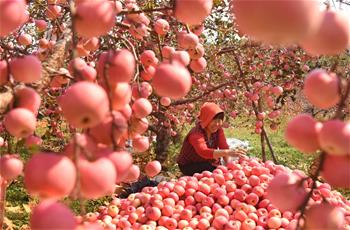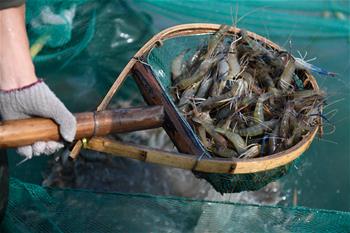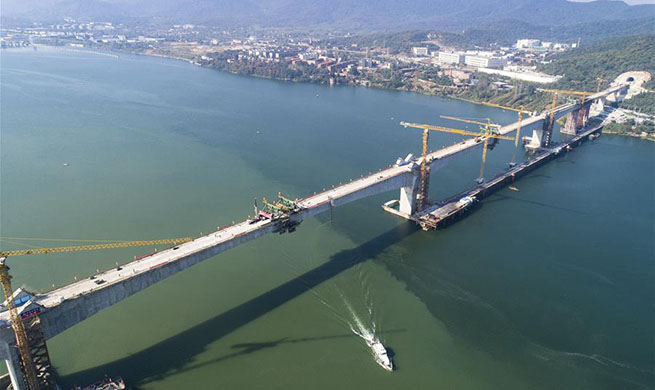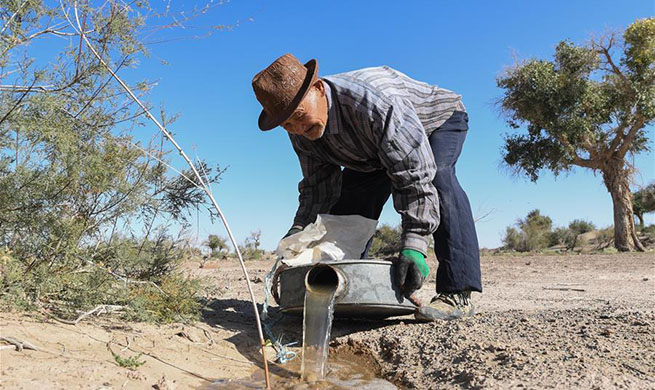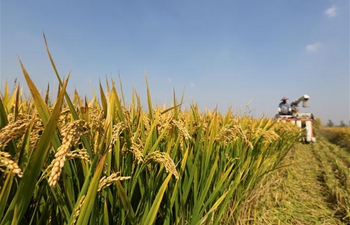by Burak Akinci
ANKARA, Oct. 12 (Xinhua) -- On a frisky but sunny October day in downtown Ankara, people were bustling around shops on central Kizilay Square. However, recent price hikes have made life difficult for both buyers and sellers.
"Last month, I could buy two pairs of shoes for my kids with the same amount of money at which I can only purchase one pair today. How can we cope with it?" said Hayrettin Isman, an employee in a private firm.
"I didn't get a salary rise in this period," the consumer said in a querulous voice.
In response, the shoe retailer insisted that he was "compelled" to increase prices because of hikes in raw material and energy.
"I am not happy about increasing prices, but if I don't, I have to close my shop. Let's hope that it won't get worse and that inflation will be controlled by the government," said Gokhan Hanci, an unhappy retailer.
A female customer, who claimed to be a civil servant but declined to reveal her name, said she is surprised to see prices going up "nearly on a daily basis."
"Inflation is too high to plan the household's expenses," the woman added.
The cashier of the market also complained about soaring prices, but insisted that the Turkish people should stick together against "foreign economic attacks and manipulations," the rhetoric used by President Recep Tayyip Erdogan to explain the currency turmoil and the economic slowdown.
A currency crash in the summer has fuelled economic troubles and high inflation in Turkey, which had a dramatic effect on prices.
In an attempt to halt lira's slide, which has neared 40 percent since the start of the year, the Turkish Central Bank hiked the rate by 6.25 percentage points last month.
The Turkish inflation rate hit 25 percent year on year in September, the highest in 15 years, and is likely to go even higher, according to experts.
On Tuesday, the government unveiled measures to rein runaway prices. In his announcement of the latest measures, Turkish Finance and Treasury Minister Berat Albayrak said the private sector has agreed to cut prices on its goods by at least 10 percent as part of an "all-out-war" against inflation.
The discount will not be compulsory but Albayrak encouraged Turks to support the companies that chose to sign up for the novel initiative.
He said Turkish banks will start cutting rates on some outstanding loans, while the country will set up a special institution to track food prices.
There will be no increases in electricity and natural gas prices until the end of the year, he added.
Earlier, Turkish President Erdogan called on the state to raid stockpilers and asked his people to inform the police of price increases at shops.
"I'm calling out to my people. In the grocery stores, you are the people who inspect what's going on most closely. If there are really big price differences in the products, in an unprecedented way. Then immediately inform the municipal police," Erdogan said.
Hoarding goods to be sold at a higher price is not allowed, the president stressed.
Meanwhile, the Trade Ministry has also intervened to stop an increase in bread prices, which has a key symbolic meaning because Turkish households are big bread consumers.




